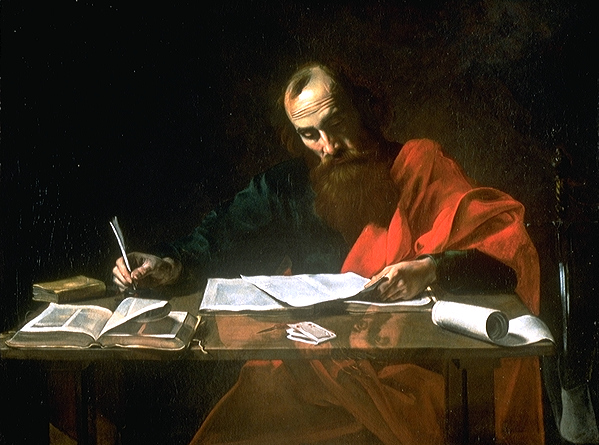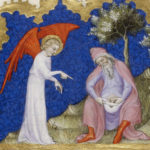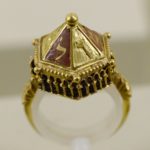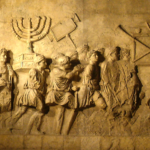Many Jews revere the Torah but don’t know the first thing about it. I wrote a whole book about the Torah, the purpose of which was to de-mythologize and de-mystify it.
A few facts
Let me re-cap a few facts about this most misunderstood and overrated document:
Science (linguistics, history, archaeology, anthropology, and other disciplines) tells us that Moses didn’t write it (of course, God didn’t write it). There were at least four authors that much is obvious from clear differences in language and content and the four texts were put together, by a fifth person, to create the basis for the document we have today (Deuteronomy is the work of one person, while the other three texts were interwoven to create the first four books of the Torah.)
I say “the basis” for today’s Torah because no one knows exactly what the original said. Some 1300 years elapsed between the first consolidated, edited Torah and the 10th-century manuscript that we use today.
Just think of all the scribal errors and on-the-fly edits that must have taken place during those 1300 years. Inadvertently changing one letter could change the whole world and perhaps the meaning of a whole passage!
Simply translating the document, with all of its obscurities and inconsistencies, into English (as the Jewish Publication Society has done) or any other modern language is a marvel of scholarship and hard work.
How rabbis and other clerics can start with that and then presume to tell us what the document “really means” is utterly beyond me. And to go even farther and find mysterious numerological and other coded “messages” in the text is just nuts. It has about the same intellectual depth as solving a crossword puzzle.
Ninth Century B.C.E.
Once again: The Torah is an ancient text from the NINTH CENTURY B.C.E. It comes from an Iron Age shepherd society. It gives us an important picture of the way our ancestors viewed the world, but its content is exactly what we would expect.
Most of its penalties are death or ex-communication (you’re lucky if you can make it to one of the cities of the sanctuary). Women have almost no rights. There are rules for how to treat your slaves. There are long passages of religious and behavioral rules and regs, as well as extensive, gruesome threats as to what will befall those who don’t follow God’s multitudinous commandments or produce his long shopping list of tributes and other goodies.
God himself is, for the most part, a vindictive tyrant (just like most of the rulers the Torah writers knew), hardly worthy of our respect, much less worship.
Selective quoting, quoting out of context, inaccurate paraphrasing, and even invention of material from whole cloth (see below) these are the strategies by which clerics make their sacred texts palatable and relevant to modern people. For those delusional who take it all literally, of course, little or none of this spin is required.
Riffing on the Torah
A friend told me that at a service she attended, she witnessed what I would call “oral rabbinical spin.” These rabbis get up there and riff on the Torah, just like jazz musicians. They start with what’s there and create something entirely different.
This is OK as some sort of performance art, but it falls far short of religious instruction or inspiration. The rabbi is being fundamentally dishonest when he/she fails to distinguish between “what the text says” and “what I say it says.”
In the service I heard about, the rabbi was contrasting the devious Jacob and the naive Esau, who was tricked out of both his birthright and his father’s blessing. The rabbi characterized Esau as an innocent, bookish sort of guy, a “Torah scholar.” I am not making this up. How in hell could Esau have been a Torah scholar? The Torah wasn’t even written!
This is the kind of bull that non-humanistic rabbis regularly get away with. Pretending that these characters actually existed, then going on to make up stuff about them is an intellectual felony, along with willful self-delusion.
Having it both ways
Some humanistic congregations commit another offense which is equally malodorous and cowardly: they try to have it both ways by denying belief in God but affirming the value of the Torah and the persona of God as sources of moral inspiration.
As I explain in my book, you cannot do this without a lot of spins. Yet this is what I found when I came to Chicago (after 12 years at The Birmingham Temple, Secular Humanism’s founding congregation, where the Torah was in the library) and tried unsuccessfully to affiliate myself with so-called humanistic congregations here. They were actually reading the Torah at services!
Not the Constitution
Let me state emphatically that the Torah is not, as a so-called humanistic rabbi once said to me, “the Constitution of the Jewish people.”
To respond fully to this canard would require an entire article, but the short version is that the two documents were put together for very different purposes. Also, in terms of content, the Constitution frees people from the government by limiting its powers; the Torah enslaves them to God.
The key similarity is that both are freely spun the Constitution by politicians, the Torah by clerics and people don’t know what’s going on. The results are a liberal religion and a socialist government.
Where to put it
I later attended a service at another, newer humanist congregation, where the rabbi (himself a product of the Birmingham Temple!) delivered a sermon in which he discussed where the Torah should be in the Ark or in the library.
Is this still a question?
Thirty years after Rabbi Wine first articulated his bold vision of “Judaism beyond God,” why are humanists still debating where to put the Torah?
Dishonest and Counterproductive
Torah-centric Judaism, no doubt driven by the power of nostalgia and the fear of seeming different (“See? We’re Jewish. We talk about the Torah too. We talk about it A LOT.”), makes many Jews dishonest and holds them back.
I’ve already explained how it’s dishonest. But it’s counterproductive, too. To assign undue importance to the Torah is to plant one foot firmly in our primitive-shepherd past.
If we insist on deriving all wisdom from the Torah, we’re going to
(1) waste a lot of time spinning the text (life’s too short);
(2) give the Torah’s primitive morality a profundity and relevance it does not deserve (I was about two when I learned that stealing and lying were wrong; by the way, the Torah nowhere forbids violence other than murder that’s enlightened?); and
(3) cut ourselves off from the vast riches of wisdom that other cultures have developed.
There is more practical wisdom in one week of my tear-off, page-a-day Zen desk calendar than in the entire Torah.
Whenever someone calls the Torah the “heart of Judaism,” I’m always tempted to reply that it’s more like the appendix or some other useless vestige.
Being Jewish
When it comes to religion, I want it practical. I don’t think “being Jewish” means only immersing oneself in Jewish letters just as in academia, the goal of teaching shouldn’t just be to create little scholars in that field.
 Being Jewish means identifying with the culture, which boasts a long and proud history of secular Jews and secular achievements in science, the arts, and service to humanity (everybody knows who Biblical Isaac was, but nobody knows, just to pick one name out of many, former Sears CEO Julius Rosenwald, a great humanitarian, and a much better role model).
Being Jewish means identifying with the culture, which boasts a long and proud history of secular Jews and secular achievements in science, the arts, and service to humanity (everybody knows who Biblical Isaac was, but nobody knows, just to pick one name out of many, former Sears CEO Julius Rosenwald, a great humanitarian, and a much better role model).
Indeed, what Judaism has that is unique is its culture our shared history, literature, foods, songs, and festivals. Lots of other peoples and cultures believe in deities, perhaps even in a God-like Jehovah. They too have prayer services and sacred texts.
And I don’t see where monotheism is such a contribution. Actually, polytheism sounds more efficient; if I were an ancient Greek who wanted to experience wealth, love or revelry, I would know specifically whom to pray to.
Practical Jewish Humanism
A practical Jewish humanism focuses on behavior and role models. Remember the humanist’s motto: “Humanity: We ain’t much, but we’re all we’ve got.”
Which leads to two questions: What is my specific spiritual challenge in this life? What role models and thinkers, especially Jewish ones (since they’ve had similar experiences), can I learn from? My list includes Woody Allen, Jesus, Hillel, Maimonides, Spinoza, Sid Luckman, Buddha, Philip Roth, Freud, Jules Pfeiffer, and Marxes Karl and Groucho.
Religion should be about how to live, but that’s just me. If you want to make it about immersion in Jewish letters, be my guest. But let’s be clear about what we’re doing and why.
The Torah is a message from an older time. It was relevant then we were shepherds. But this is now we’re a world, people.
How many congregations are out there spinning the Torah, reading it aloud, and making it the focus of their Judaism, even when there’s a clear alternative? Why don’t they have the courage to put the Torah in the library, so that they can stop lying to themselves about its importance and get on with their development, as Jews, and as human beings?






